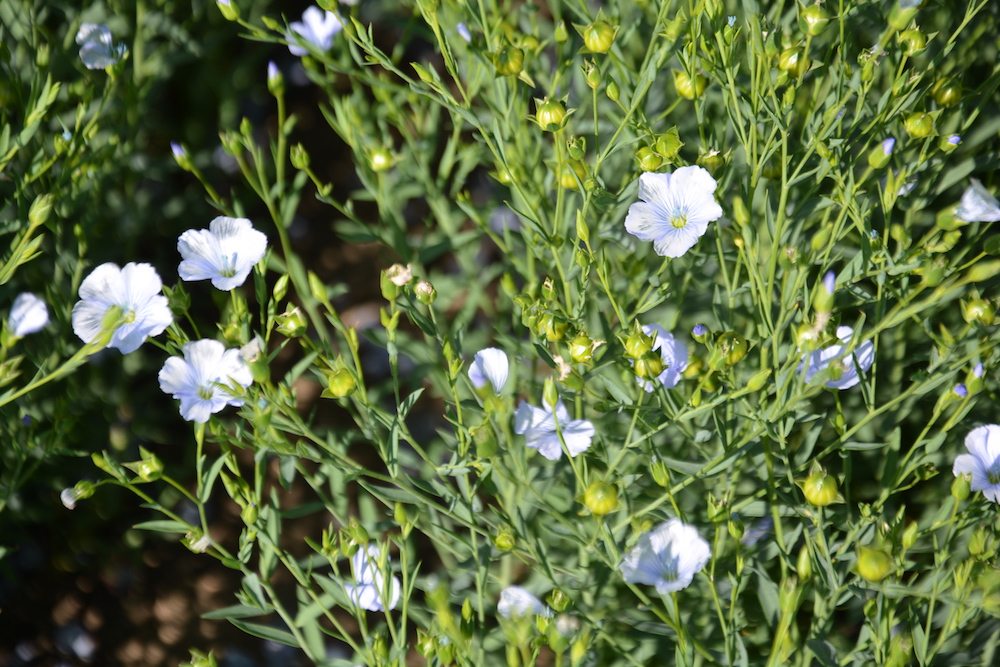The Alberta Regional Variety Testing program (RVT) is the most trusted source of variety information for producers in Alberta. Farmers need accurate, regional and the most current variety information to stay competitive.
The Alberta Regional Variety Advisory Committee (ARVAC), the official body that establishes policy for the variety-testing program, takes this responsibility very seriously, and constantly strives to present the data in the most appropriate and understandable manner.
According to Alex Fedko, RVT program coordinator and crop research technologist with Alberta Agriculture and Forestry, the goal of the RVT is to provide cereal, flax and pulse crop growers, and industry and extension specialists with scientifically valid crop variety performance information under different agro-climatic conditions. Data is published in the Alberta Seed Guide and in Alberta Agriculture’s Varieties of Cereal and Oilseed Crops for Alberta pamphlet.
“There are many sources of variety information for producers,” says Fedko. “However, this program is unique because the data comes from two independent sources: the co-op trials where new crop cultivars are tested before registration and data from post-registration (regional) trials. For example, the spring wheat co-op data that is reported in the Varieties of Cereal and Oilseed Crops for Alberta factsheets includes days to maturity, resistance to lodging, shattering and sprouting, and resistance to five different diseases. It is hard to find a third-party source of information that would have all the relevant material in one package.
“Free access to independent variety performance information helps producers to select varieties that perform well in their commercial fields, and also this data is helping seed growers to choose a cultivar that will meet their customers’ needs,” adds Fedko.
Accurate Data
The RVT program is responsible for generating unbiased post-registration information for varieties of wheat, barley, oat, rye triticale, flax, field pea, chickpea, lentil, dry bean and faba bean.
Good field trials are required to generate reliable data, and several quality control steps are in place to achieve this. Fedko annually reviews test protocols with collaborators to detail the conduct of the trials and the expectations. All of the field trials are also inspected; cooperators receive 35 per cent of the plot payment for seeding, but unless the trial passes a July inspection, no further payment is made.
Crop specific coordinators, individuals who are experts in the crop, review the raw data prior to analysis. After the data are approved, statistical analysis is performed and measures of variability similar to those used in crop registration trials are used to determine the reliability of the trial prior to entry into the database. Finally, the crop specific coordinators review the tables prior to presentation before the committee, where they are discussed and ultimately approved for publication.
“We constantly strive to present the data in the most pertinent and understandable manner. As examples, in recent years we’ve changed the method of yield data presentation, used actual ratings to report disease resistance and added various columns of new information,” notes Fedko. “And finally, producers have asked us to enter a few more cultivars that they may be able to relate to more readily. The entries in the trials changes every year and it is made up of new varieties that producers are likely to see within the next two to three years.”
The inclusion of some older “benchmark” cultivars that are well known to producers started this season and Fedko says that should help producers make better-informed decisions. The selection of the benchmark varieties is based on the most popular varieties from data published in Yield Alberta. It means that wheat, barley and oat trials now have three to four checks instead of one.
Understanding Cereal Variety Data
When comparing varietal performance data, growers should find as much information as they can from various sources.
“The RVT tables done by independent cooperators is really just another set of data to compare the results producers are seeing from company data, variety registration data, crop insurance data or their own field trials,” says Fedko. “Consistency among the different sources of data sets is the key. If a variety is repeatedly coming out in the top, the confidence that it will perform well goes up.”
However, in case there are substantial differences among those different data sets, it doesn’t necessarily mean a grower should stay away from a variety, but rather it should be the signal to do more research. In this case, digging deeper into background of those trials may help. Protocols used, weather conditions, or other growing season stresses may have caused the poorer performance at some locations.
Looking at other factors besides yield is important to get a complete picture. In many cases, the varieties included in the trials are top performing varieties from various programs, so the yield differences may be small. In this case, a variety that has a larger number of station years can increase confidence.
Other factors that may be as important as yield data are maturity, lodging and disease ratings. Growers have many options at their disposal, however, spending a lot of money on good genetics will not compensate for poor agronomic management. Starting with good genetics is a foundation to have a successful crop, but it can’t make up for poor management down the road. It is still important to get adequate plant population established early, sufficient nutrients for an appropriate target yield, and then protect the yield potential from pests and harvest losses.
Funding
Conducting regional variety testing for numerous crops over the large agricultural area of Alberta is a huge undertaking. The RVT program is funded in four ways: industry funds via annual entry fees for lines in the regional trials; Government of Alberta contribution of the RVT coordinator; funding from parties with interest in regional crop performance data for Alberta producers; and in-kind contributions of time/seed/trial coordination/plot data from collaborators who do not receive monetary compensation. There are some differences in funding between the cereal and pulse crops.
According to Fedko, in 2017, the cereal and flax RVT program under ARVAC expects to generate $76,700 through a $1,300 annual testing fee charged for each variety being tested, excluding checks. In addition, a major contribution from the Alberta Wheat Commission along with funding from the Alberta Barley Commission, the Oat Growers, the Alberta Seed Growers and the Alberta Seed Processors (half goes towards ARVAC) helps to defray modest expenses to deliver the program.
“This revenue is used to fund regional variety trials at nine to 11 core sites in Alberta,” notes Fedko. “A few additional unfunded sites are also grown by interested parties, largely for extension purposes, and those data are available to us, provided that all quality controls are met. “
Fedko adds that in recent years, it has been generally accepted that $50 per plot is required to defray the direct costs of growing small plot variety trials. “We are not quite there yet, however. Thanks to the very generous contribution from the Alberta Wheat Commission, we are much closer to the goal than two years ago.”
The pulse crops regional variety-testing program has been sustainable thanks to $100,000 funding through the Growing Forward II program. The funding is a contribution from the industry and Alberta Pulse Growers, and is matched on a 3:1 basis by the federal government.
“Finally, the funds we receive are solely for the benefit of Alberta producers and do not leave the province,” says Fedko. “Moreover, of the $278,000 collected last year for the RVTs, less than $15,000 or five per cent was used for seed setup, shipping, administering the funds and maintaining the crop information system database.”
At the end of the day, industry contributions, including those from Alberta Wheat Commission, Alberta Barley, Alberta Oat, Alberta Seed Growers and Alberta Seed Processors are priceless, contributing to the inherent success of the RVTs.





